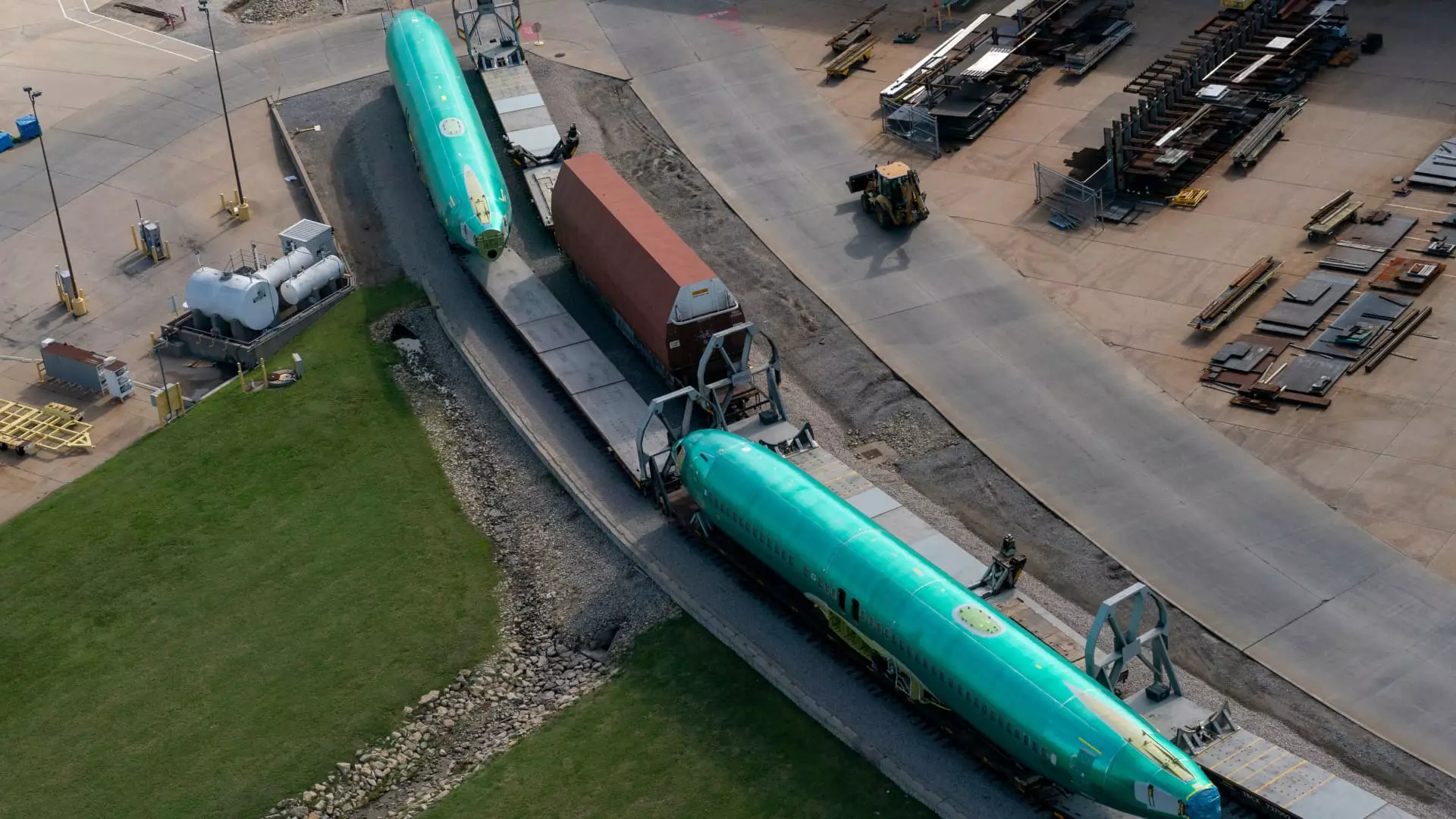The ongoing strike by Boeing machinists has thrown the aerospace industry into disarray, with significant implications for companies such as Spirit AeroSystems. Initiated on September 13, the strike was fueled by labor disputes, with machinists rejecting Boeing’s proposed labor contract by a considerable margin—64% against it. This walkout marks the onset of a critical phase, as many workers remain steadfast in their demands for better working conditions and compensation. With the strike nearing its sixth week, the ramifications are beginning to surface, threatening not only Boeing’s production capabilities but also those of its extensive supply chain.
Spirit AeroSystems, known for producing fuselages and essential aircraft components, finds itself facing the prospect of additional furloughs or layoffs, as indicated by company spokesman Joe Buccino. With around 700 employees already slated for temporary furloughs due to the production halt stemming from the strike, the potential for more significant workforce reductions looms heavily over the company. If the walkout extends past November 25, further cuts might be necessary, showcasing the deepening crisis within the aerospace sector.
The financial health of Spirit AeroSystems adds urgency to the situation. Reporting a staggering net loss of $477 million in the third quarter—a figure that is more than double that of the previous year—the company is straining to maintain operations. Already conservative in staffing actions, suppliers like Spirit have hesitated to downsize their workforces after years of recovery from Covid-19 impacts. However, continuing pressure from Boeing’s labor disruptions could force difficult decisions.
This scenario is not isolated; the entire aerospace supply chain is feeling the strain. Changes in demand for parts and the cascading effects of the strike are causing ripples throughout the industry. For instance, Airbus is reportedly grappling with similar pressures, underscoring that the inefficiencies in one major player can significantly affect others, even competitors. The industry’s reliance on a delicate balance of manufacturing and supply has become increasingly precarious, amplified by strikes such as the one crippling Boeing.
Boeing’s new CEO, Kelly Ortberg, has identified resolving the strike as a top priority. The urgency is amplified by the impending merger of Boeing with Spirit AeroSystems, expected to finalize next year. The successful conclusion of negotiations with the machinists is crucial—not just for resolution but also for stabilizing investor confidence. The union representing the machinists has expressed readiness to return to the negotiating table, and both sides will need to approach discussions with urgency to avert a prolonged crisis.
The Boeing machinists’ strike serves as a stark reminder of the vulnerabilities inherent in the aerospace manufacturing ecosystem. As Spirit AeroSystems considers deeper workforce cuts, the industry will be watching closely to see how this dispute unfolds, knowing that its resolution may prove essential to restoring order and stability to an already troubled sector.

Leave a Reply